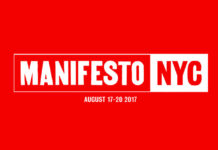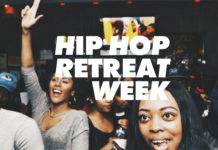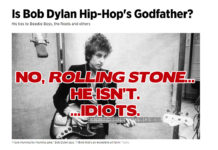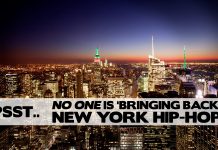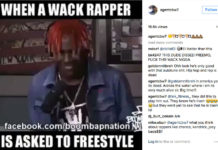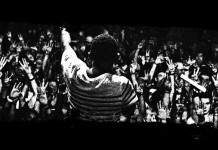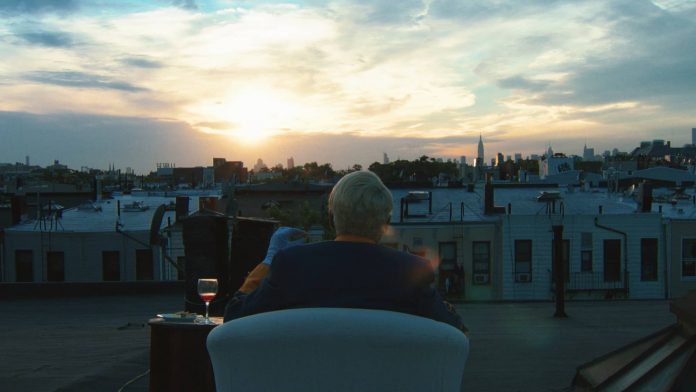Mtume Gant is an award-winning, independent filmmaker based in New York City, as well as a recording artist, known as Core Rhythm. We previously spoke to Mr. Gant on two occasions — once in a Q&A here on Birthplace Magazine, focused on his at-the-time new project, Spit, and a broader interview on The Manny Faces Show.
Since then, Mtume Gant has racked up multiple film festival wins for Spit, and has been working on his latest short film, White Face.
Birthplace Magazine contributor Clarence G. Fruster sat down with Mtume Gant to get a bit more insight into his life, his work and what White Face is all about.
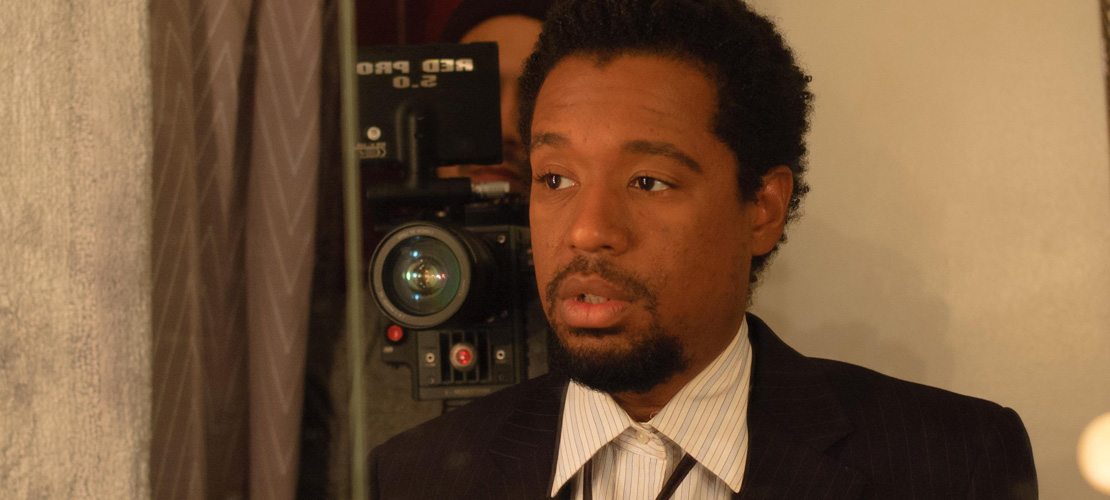 If you could control the first thing a person knew about you, what would it be?
If you could control the first thing a person knew about you, what would it be?
That I’m interested in things. I’m always just interested in things. Someone sent me something that had to do with the election and I didn’t know about it, so I looked up the info. I Googled it immediately. And while I did that, I read something else I didn’t know about, so I Googled that. I’m interested in things. I never take what I know as the final word. There’s more, there’s more, there’s more. And things are connected and it’s like, what can these things tell me about myself, about the world. There’s always more.
Where are you from?
I’m from New York. I was born Uptown. My mom lived in The Bronx. My dad lived on 86th. I spent most of my time in Harlem when I was growing up. We moved around a bit, but I consistently felt at home in Harlem. No knock on Brooklyn, but I don’t feel at home there. Harlem is home.
Where are your parents and people originally from?
My dad is from Seattle but his mother and his father are from the South, Tennessee and Virginia. Deep Southern roots on that side. My mother’s side is a lot more complicated. My Mom is from Lower East Side. My grandfather has Caribbean roots, roots from here, even some stuff he doesn’t know. It’s a mix of things. My great grandmother was part Native American and black. There’s longstanding rumors that my great grandfather on that side is part Swedish or something European. My mother’s side is similar to the African-American experience for many in that we just don’t know. There’s a big mix and variety of roots and some mystery regarding that.
What was your experience with school?
I was a weird student. I liked learning but I hated school. I didn’t really enjoy school. Early on I had a lot of teachers that tried to box me in. I had a teacher in 1st grade that tried to leave me back. They told my mother something along the lines of, “He’s not ready to be in a classroom.” My parents immediately took me out of that school. They knew it was ridiculous. And there was this other kid she did that to, I always think about him. What happened to him? Because the parents listened to her, and let her leave that kid back. I always wondered what happened with him.
In middle school I found acting over at Manhattan East, so opportunities in school opened up for me around acting. I was the kid that got 85s but could’ve gotten 100s if I tried a bit harder. Then I went to LaGuardia [High School of Music & Art and Performing Arts] and by the time I got there I had evened it out as a better student but still focusing on acting. In high school, my love of hip-hop made me being knowledgeable more appealing. Science, History… It all became more appealing.
I went to college and studied acting, and got my BFA at SUNY Purchase, which was great. It was an interesting environment, and a lot of my new film is about that, directly and indirectly. It was my introduction to business life as an artist and that was conflicting with what I wanted to be as a man and an artist. I also met my greatest teacher there. Her name was Joan Potter. I met her in her late 70s. She was an old, white woman who was a Republican, but she was my greatest advocate because she believed in art. If you were an artist who came from truth, she rode for you. And she rode with me through everything, the politics didn’t matter.
After Purchase I never looked back, I wasn’t really looking to deal with these institutions for advanced degrees.
Is there a greater purpose involved when you create? What motivates that? Where does this purpose come from with regards to your life personally?
There’s always a greater purpose in everything I do, but what’s interesting for me is that I like working personally. I think the most important thing you can do as an artist is speak your truth, but also be very introspective about what your truth is, constantly. All you have is your viewpoint, all you have is your lens. Come personally. When you’re not coming personally, you’re leaving yourself open to be somebody else’s mouthpiece. I’ve forsaken a lot. I could have a lot more money. I could be doing things that are a lot more “prestigious.” I’ve always been really worried about not having integrity, because people can see that. It would break me to be seen as fraudulent.
Who are your top three influences in film as far as individuals, and why?
Number one is a man named Wendell Harris, he did a film called Chameleon Street. It’s ironic to call him the most influential because he only made one film. I think it’s the most important film made by an African-American filmmaker, ever. To this day, I think it is arguably the greatest independent film ever made in America, regardless of race. At least top five. There can’t be any talk about independent film without mentioning Chameleon Street. Before I saw Chameleon Street, I didn’t know how the African American experience would look on film. Things like Boyz n the Hood were good, but relatable from afar. I saw Chameleon Street and I saw me, my family, my uncles. That anger, that perspective, that wit. That black intelligence. That’s stuff that I say! It flipped me out.
Number two is someone totally of another context, Andrei Tarkovsky. He’s considered in many circles one of the greatest filmmakers of all time. I like his work because there’s a higher purpose and he’s always searching for “more.” His message is about being authentic in your perspective as an artist. He invented things. The dude that just won the Oscar for The Revenant, got that from Tarkovsky. People take from him all the time, and even though his films are in Russian with subtitles, you watch it and you get it. You understand it.
Number three is someone I really dig. He’s a Hungarian guy named Bela Tar. He retired in his 50s to go teach filmmaking, saying, “I have no more to say. I would be repeating myself over and over again. Who wants to hear someone repeating themselves again?” When asked what he’s trying to get young filmmakers to do, he replied, “Try to get them to be more radical than I was.” I really respect his need to do things from his own perspective, almost to the point where he seemed manic. But I think that’s a response to him feeling like the world is manic, because it wasn’t letting him do things from his perspective. He grew up in Communist Hungary, so the want for expression and freedom was real. When asked how it was to live “free,” he basically said, “Yeah, but it’s difficult now. I used to have the Communists telling me what to do. Now I have the market telling me what to do.” For him to say the Communist and Capitalist spaces were equal, is powerful.
What are your top three influences in film, as far as specific films, and why?
Chameleon Street stays at the top due to all of the references. When I was acting, there was a “black” style of acting a lot of the [play] writers liked. And since I was the “New York guy,” they tried to make me play that style. But I grew up in a multi-ethnic melting pot so that style wasn’t representative of what I was trying to do. Chameleon Street has that kind of energy, real depictions.
Another film I loved since I was a kid around 12 or so, was Dog Day Afternoon with Al Pacino. It’s funny, some movies you see when you’re younger and then realize when you’re older they weren’t that good. No, Dog Day Afternoon is better with time for me. It’s a universal story that is very New York. Down and out person finds his voice, makes it in life, but the powers-that-be still have that control. It’s about the people, human beings. Kinetic. ’70s energy. I like that stuff.
There’s so many, it’s tough to pick a third. I really like modern Korean cinema. I think Koreans in the last 15 years are making the best movies in the world. There are about four who are really serious and three others that are doing some adventurous stuff as well. There’s a movie that came out of there called Memories of Murder by Bong Joon-Ho. It’s a mystery based on a true story about the first serial killer in Korea. Apparently Korea didn’t have serial killers until the ’80s when Western influence came in. It’s a genre film, but as you dig deeper there’s this widespread social commentary on society’s ineptitude, touching on where we’re going as human beings. I was so amazed that someone was able to take these fixed structures of genre and make something as good as anything I’ve ever seen.
https://www.youtube.com/watch?v=dTnyhLywdJc
Understanding you’re an excellent critic, what are three films you consider uniquely problematic or even the antithesis of your own approach and ideal for film?
This came up on my homie Baxter Wordsworth’s page. I have a huge issue with rape in film. I think it’s overdone and it’s bad. This goes to my greater feelings with graphic violence in movies. Why do we need to depict it? Why are we willing to watch certain groups graphically violated? I would never depict it on screen. I want people to come see my films without ever being triggered. It’s not daring. A similar issue today is the brutality in slave movies. What is this reinforcing? I don’t get it. It has to be purposeful. You have to say, “Why am I having this here?” So hyper-violence is a major issue. I struggle with Quentin Tarantino’s films. He’s created a lot of violence pornography. And then he’s found a way to include gender, race and culture, finding ways to justify the violence pornography and get people on his side. I find it insidious and very problematic.
Multi-part question. How do you feel about the current state of African-American influence in the film industry, from an executive standpoint?
We still have very little executive power because we can’t distribute. Regardless of race, the most powerful position is can you finance or distribute your films. Even Tyler Perry can’t distribute his films. But the structures he’s created and used are a model that need to be studied by black people. What Ava DuVernay did with her company. She started a platform to release independent films by black directors in the festival circuit because we don’t get the same looks. There’s always this sense that our independent films will encounter issues in business, meanwhile Moonlight is destroying the myths. No white people in the movie and only white people are going to see it. I hope someone writes about that.
But something interesting about Ava’s company was that it opened up to not just black people, but women in general. I don’t inherently have an issue with this, and I actually believe the focus on women is important, but I wish it was a focus on women of color, since women of color are particularly marginalized beyond what any group experiences in cinema. It makes me wonder if it’s a further example of us moving more towards an assimilation model rather than an ownership model. That can be dubious.
-from an acting standpoint?
I’d like to answer in two parts. Artistically, I think we have the same trials and triumphs as white people are having in America. American film is in a weird space in general, regardless of race. It’s an aesthetic thing. Socially, we’re still reading about the huge disparities in pay. At the same time, two of the three highest paid black people, are black women, which is a good thing from an equality standpoint, but what I find very interesting is that we’re more like upper-second class citizens. We’re talking about Kerry Washington, Viola Davis. I mean the Latina sister from Jane the Virgin won a Golden Globe. Compare her pay to the white counterparts in her field.
There’s also an effort, with roles like how Will Smith gets cast into something clearly meant for a guy like Ed Norton or some other actor that’s based on a paradigm of whiteness… Trying to make it as if we’re all a part of some de-raced world, which is laughable. You can’t really take that serious.
– from a directing standpoint?
I think where black acting needs to go is intrinsically connected to where black directing needs to go. There was an article about Eddie Murphy recently about his most recent film that broke my heart. I love Eddie Murphy, I think Eddie is a genius. If Eddie is listening, if he’s around I’m going to say something. I think what’s failed Eddie Murphy hasn’t been him, it’s that he hasn’t had a black director there for him. There was a joint interview with Eddie Murphy and Spike Lee in Vibe some years back that was eye opening. Eddie talked about how white directors would just use him and discard him. Use him as a stepping stone in movies and then he couldn’t get them on the phone anymore, except for John Landis. Eddie was large in a time when you didn’t have many black directors. Eddie needed that. Eddie was able to bring blackness to the screen in very white movies in a way that was powerful. Very few people have been able to do that. Beverly Hills Cop, The Golden Child. You KNOW the brother! He was SO Black! Not BLACK like a stereotype, but he was black and it was familiar. Powerful. Eddie never got the chance to transition to bigger and more serious roles, because there weren’t black directors there to assist with that. I think there are so many great black actors out there and it takes black directors to get them exposure.
Things like what Barry Jenkins is doing with Moonlight give me some optimism. His efforts can end up being a primer for others. It ties back to the executive thing. We need to get black directors working. How are we going to empower these directors?
What do you hope your lasting contribution to film will be?
That I was brave and I encouraged people to be brave and very bold. I was having a conversation with a friend last night about my new film and she indirectly asked me what I wanted to do with it. And it hit me after I got off the phone, I want to be brave. I want to be brave. I want to encourage everybody, fuck the rules a little bit. I think the rules are fucking everything up. When you start making film, they give you this list of ‘do’s and don’ts’ and then you look at all the films you really like and they did all the ‘don’ts.’ Then you add race into it and then it’s like is this some sort of placism? Are you putting me in a box and saying, “You really can’t do that?” So when do we start? That is why we need to be brave. I want black filmmakers to be brave.
Tell me about your previous film Spit and where you are with it.
I feel great about Spit. I didn’t come into it with a great deal of expectation, I just wanted to make a film and see where it goes. The tour of it through festivals was interesting. I learned a lot of strange things. There are three distinct sections within art. There’s ‘audience’ on one side, and on the whole other side there’s ‘creative.’ Then there’s this middle. They are business, or gatekeepers, or whatever you want to call them. And they are constantly keeping the people and the artists away from each other. It’s how they make their money. I realized that everyone does this. There are black folks using these positions to focus on the black narrative they want to present. So I got into some festivals that black filmmakers traditionally had difficulties with but I also encountered issues at traditionally black festivals due to my film not being what was interesting to them. Not all of them, but it was out there. So that was a learning lesson I’m glad for. I knew it intellectually, but I needed to experience that.
What is the idea behind White Face?
Towards the end of last year I knew I couldn’t leave 2016 without making another film. I knew I wasn’t going to get the capital to make a feature film so I decided to make a short. The idea of ‘the minstrel’ has become very interesting to me again. I know the minstrel is still here, but where do they exist? Where are they? The face is probably now washed off and it’s regular skin, so where is it? Initially, I had a story in my head about an actor preparing for a show that he was going to do in white face, but I couldn’t get it to work narratively so I backed away from it. And right when I started to back away from it a few things happened. Rachel Dolezal happened. Don Lemon continued to say crazy insane stuff. And then Trump started gaining traction. Then I’d see weird things like ‘Black People for Trump.’ Or our favorite black person, Ben Carson. Stacy Dash. You know what was a big turning point? Stacy Dash at The Oscars, when she came out, and it was cringeworthy. So then, I started to have these images of an actor putting on white face. I thought it was interesting and I started jotting down stuff. And then I got personal. Why is this interesting to me? When I’m out there as an actor, are they letting me be me? Or am I putting on a skin that is not mine.
What else can you tell us about White Face?
As the film was finishing I realized, it’s a film about identity. And the complicated nature of identity in America. Not just for black people, but for everyone. When you’re a person, and you are of a race, then a race becomes an ideal. There’s white people and then there’s whiteness. There’s black people and then there’s blackness. People put on the white coat in order to exude power and feel powerful, that’s what we associate whiteness with in our society. Blackness often exists as a defense for whiteness in our society. Then you look at someone like Condoleeza Rice and she’s like “Get that blackness thing away from me” because she’s afraid if she wears it, the whiteness she’s been able to adopt won’t work anymore. At the end of the day, you are who you are. So that’s the film, a discussion on identity. It’s the experience of someone through performance, but I was always taught that performance is life. How is he going to achieve what he wants? How is he going to use that skill set to get what he wants?
What I hope you get from it? I don’t know. I’m just looking forward to it and curious about the conversations I am going to have with people of all races.
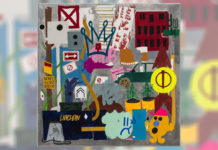
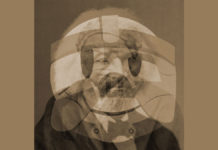
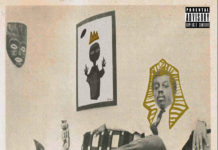
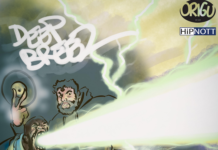

![The Underachievers – Crescendo [VIDEO]](https://www.birthplacemag.com/wp-content/uploads/2017/08/hqdefault-2-218x150.jpg)


![Fat Joe & Remy Ma ft. The-Dream – Heartbreak [VIDEO] Fat Joe Remy Ma The Dream - Heartbreak Video](https://www.birthplacemag.com/wp-content/uploads/2017/05/fat-joe-remy-ma-218x150.jpg)
![JSWISS featuring Chandanie – LML [VIDEO] JSWISS featuring Chandanie - LML [VIDEO]](https://www.birthplacemag.com/wp-content/uploads/2017/05/JSWISS-218x150.jpg)

![Akinyemi Ends Summer With “Summers” EP Release Show [9-17-17] Akinyemi 'Summers' EP release show at Brooklyn Bazaar](https://www.birthplacemag.com/wp-content/uploads/2017/09/summers-featured-218x150.jpg)
![4th Annual NYC VS EVERYBODY Yacht Party [9/16/17] #VSYacht 4th annual NYC VS Everybody Yacht Party#VSYacht](https://www.birthplacemag.com/wp-content/uploads/2017/09/vsyacht-218x150.jpg)
